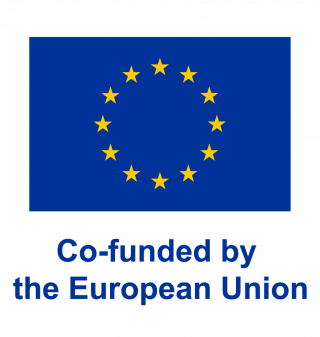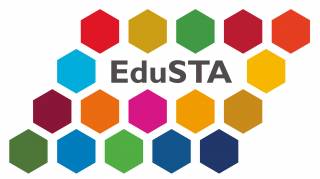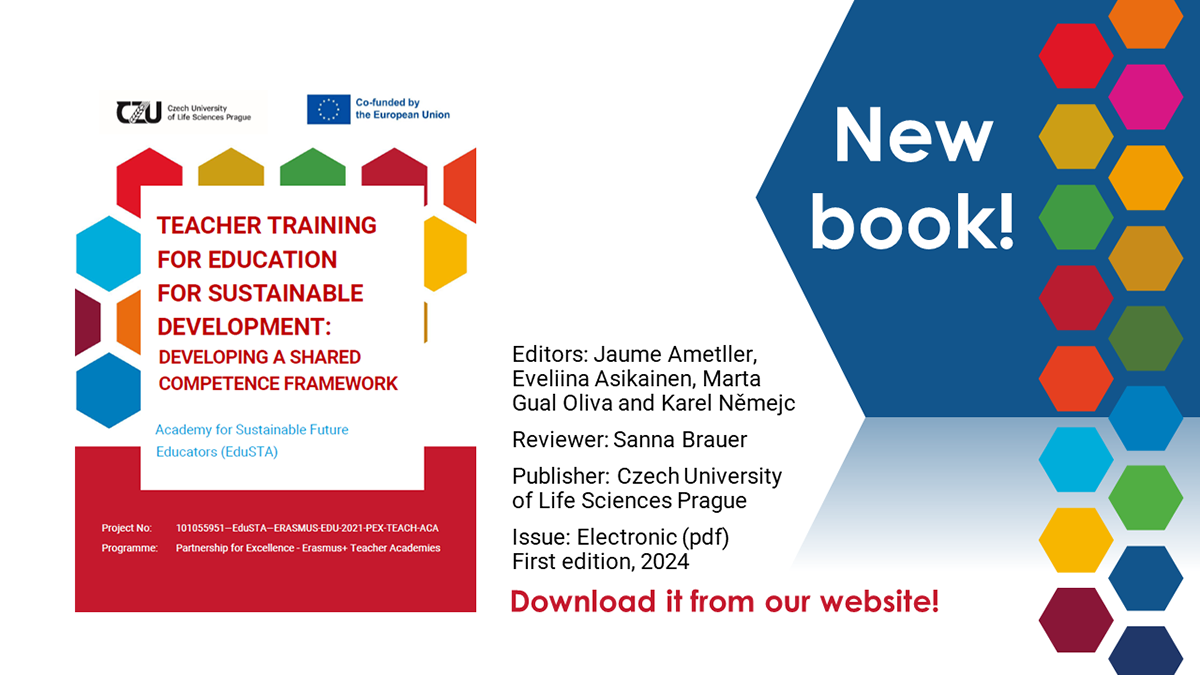Education for Sustainable Development is a key element to confront the challenges we are facing. Embracing this perspective requires deep systemic changes and teachers are key actors in this process. Several definitions of the goals of Education for Sustainable Development have been put forward in the past decades and, in some cases, they have also proposed competence frameworks for teachers. These proposals have been discussed in the field, they have influenced policy and have underpinned educational projects, but they have not permeated the bulk of the educational systems yet.
Rather than developing an alternative competence framework the EduSTA project consortium proposed a framework that fits into existing, influential frameworks, that is constructed with competences that connect with teachers’ practices in concrete and accreditable terms.
For that purpose, the EduSTA researchers run a research from December 2022 to February 2023 in the Czech Republic, Finland, the Netherlands, Spain (Catalonia) and Sweden. The applied methodology was a desk and a qualitative research.
Objectives of the research were as follows:
- mapping the legislative frameworks in life-long learning of VET teachers in areas of ESD; and
- identifying contextual possibilities and restrictions for transformative learning on sustainability.
To define this framework, EduSTA researches have conducted a literature review to identify proposals of competences for teachers in Education for Sustainable Development that have had the most impact on research and international organizations initiatives. A comparative analysis of the selected proposals has led to identifying their central and common elements. These elements have been formulated to address the goals of the European competency framework on sustainability, GreenComp, so that the resulting competences will be coherent with policies underpinned by this framework.
To design a proposal that can be operationalizable, competences must address both the ideas developed in existing competence frameworks and the reality of educational contexts where teachers work. In particular, when considering teacher competences, the context in terms of teacher training and how it is intertwined with educational policy and praxis need to be taken into the account.
Information has been gathered from existing policy documents as well as from a diversity of experts (practitioners, policymakers, and specialists in Education for Sustainable Development). As a whole, the data has allowed the project consortium to construct a multi-perspective account of the present situation on teacher training related to Education for Sustainable Development.
The EduSTA teacher competences for Education for Sustainable Development were formulated through a collaborative work across the consortium considering both the analysis of the literature and the contextual information. The results is a framework of four competence areas that, together and in interaction with each other, constitute the core of teacher identity development in relation to Education for Sustainable Development. This framework is at the core of the micro-credentials developed in Work Package 4 and the contextual information also underpins the development of educational proposals in Work Package 3.
The work carried out in this work package has been published in a book
Editors: Jaume Ametller, Eveliina Asikainen, Marta Gual Oliva and Karel Němejc
Reviewer: Sanna Brauer
Publisher: Czech University of Life Sciences Prague
Issue: Electronic (pdf)
First edition, 2024
Download from the link below.


